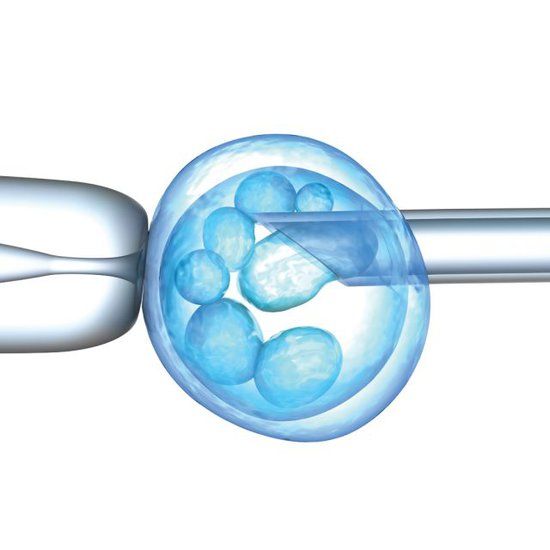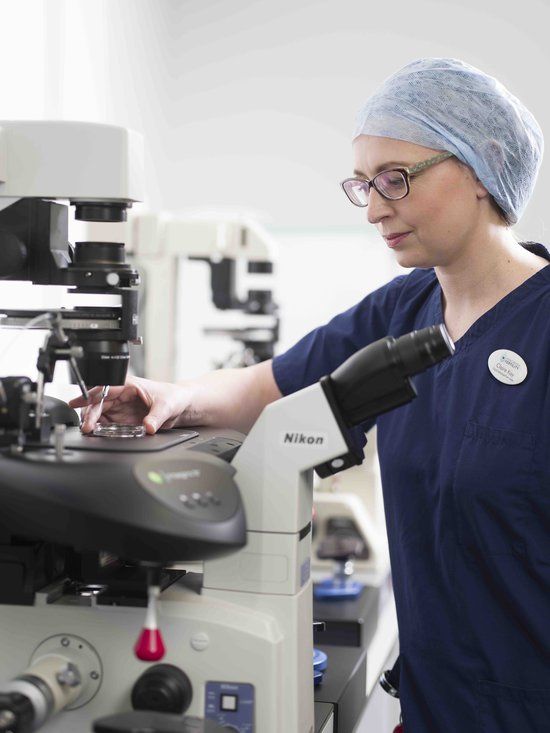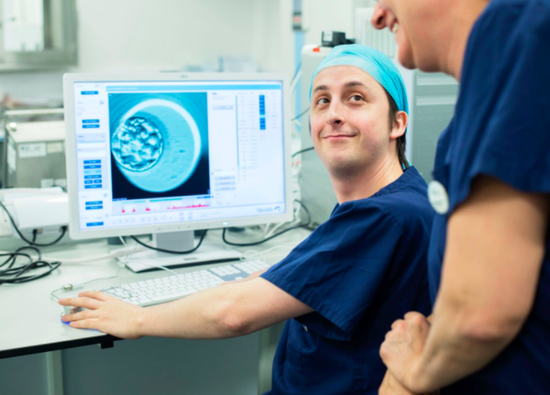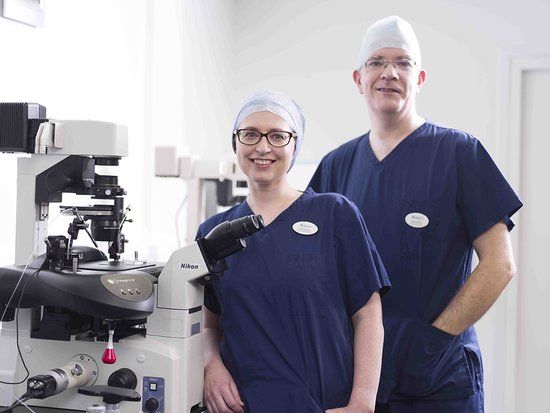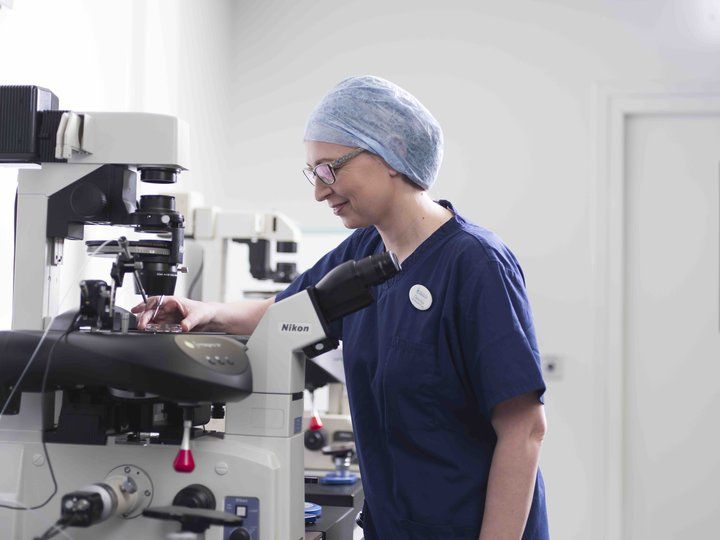
Preimplantation Genetic Screening (PGS) is a special advanced test we can perform that looks at an embryo’s genetic make-up, helping us to decide if it’s suitable for transfer or not.
It can help you have a baby if you’ve had recurrent pregnancy loss, have a history of failed IVF or are at a higher risk of producing abnormal embryos due to age.
Here’s what you need to consider if you’re thinking of having Preimplantation Genetic Screening as part of your IVF cycle, as there are a number of benefits and risks for this type of genetic testing:
Benefits of Preimplantation Genetic Screening
Preimplantation Genetic Screening checks that an embryo has the right number of chromosomes. It can:
- Significantly reduce the risk of pregnancy with an abnormal embryo, which occur in women of any age who have conceived naturally or through IVF, often leading to miscarriage or failed treatment.
- Help you achieve pregnancy in the least number of IVF cycles.
- Help you avoid future failed IVF cycles and pregnancies – if PGS shows you have only abnormal embryos, you can consider alternative ways to have a family such as the use of donor sperm and donor eggs.
Limitations of Preimplantation Genetic Screening
It’s important to understand what PGS tells us, and what it doesn’t, as many patients having IVF confuse PGS with other forms of genetic testing:
- PGS only identifies if an embryo has more or less whole chromosomes than the required number to develop into a healthy baby – so it may not detect abnormalities involving smaller pieces of chromosomes and other types of chromosome anomalies.
- PGS doesn’t detect genetic disease mutations or test for specific genetic conditions. It cannot tell you the gender of an embryo.
Risks of Preimplantation Genetic Screening
PGS is a very safe procedure, with a less than 1% risk of damage to an embryo during cell extraction.
This is because PGS is only performed on embryos that have reached Day 5 Blastocyst stage, by our embryologists who are qualified Embryo Biopsy Practitioners, highly trained in the techniques of cell extraction and the strict processing procedures of genetic testing.
One of the main risks of PGS is that there will be no embryos considered to be normal and therefore suitable for transfer.
It’s also important to be aware that although PGS has a 97% accuracy rate, the risk of a pregnancy affected by a chromosome abnormality isn’t removed entirely. In addition to PGS you should undergo recommended prenatal testing that is based on your age, medical history and other assessments carried out during pregnancy.
PGS also sometimes can’t be performed in an IVF cycle. This is typically because:
- You’ve been advised to have embryo transfer earlier at Day 2 or Day 3 of development because of how your embryos are growing or because you have a very low number of embryos– only good quality Day 5 embryos can be tested through PGS.
- Embryos aren’t developing normally.
- Cell quality is poor and unsuitable for testing after extraction – about 5% of embryos have cells that cannot be analysed, although re-testing is sometimes possible.
Deciding to use PGS in IVF
Deciding to proceed with PGS is a very sensitive and individual decision. Your Manchester Fertility consultant will discuss the benefits and risks with you in your particular case, so you can make an informed choice about whether to have Preimplantation Genetic Screening in your IVF treatment.
If you’d like to know more or have any questions about PGS, talk to our Patient Advisors on 0161 300 2737, or you can request a call back or send us an online enquiry.
Last updated: 14th June 2018


